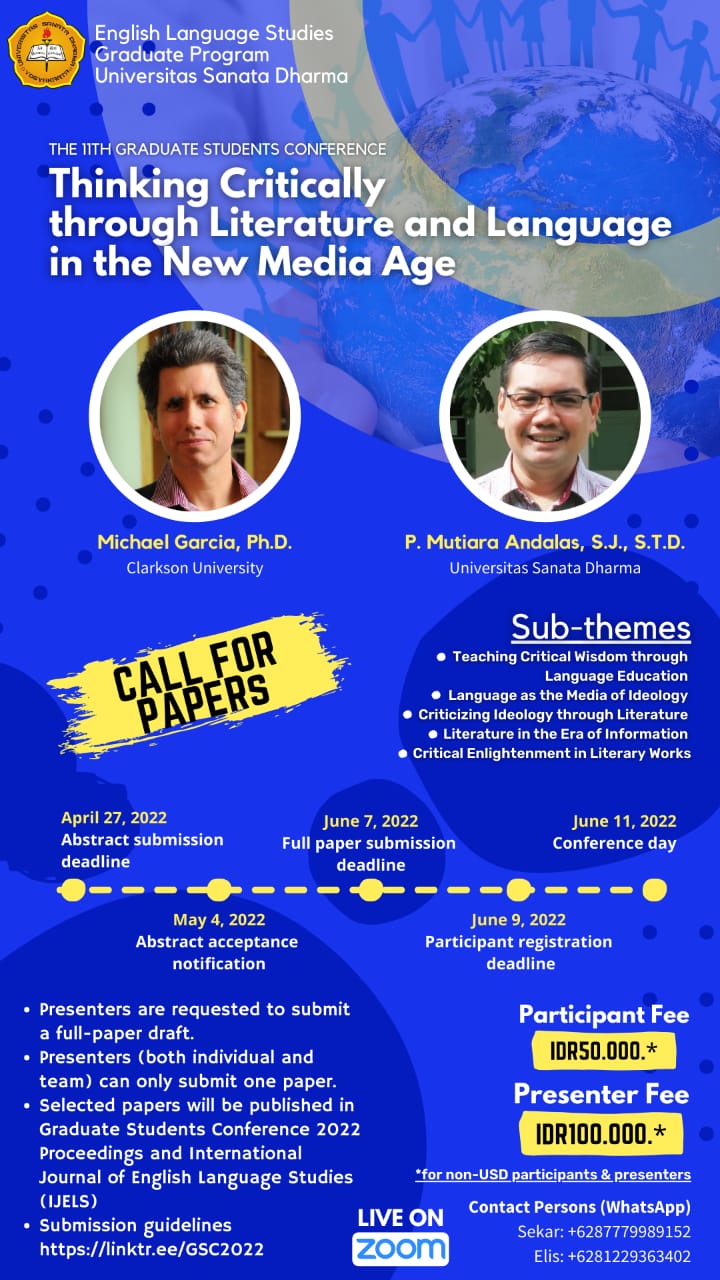 In this new media age, critical thinking is needed more than ever. This phenomenon also displays a paradox: there is a democratization of knowledge to open the minds of many, yet there is also the rise of fanaticism and brainwashing phenomena propagated by extremist groups such as ISIS. This is where critical thinking through literature and language comes into view.
The New Media Age is synonymous with the Digital Age, which is also known as the Information Age which develops rapidly and continuously today. In this New Media Age, people easily access information through a single tap on their gadget screen. The information we access on TV and other mainstream media can also be accessed on smartphones appearing in the forms of Instagram post, Facebook post, Instagram stories, reels, Youtube videos, Tiktok contents, and many others. Hence, the mainstream media also migrates to the aforementioned social media platforms, where the space for captions and contents are very limited, and complete context of the news is often not provided; these complete contexts can be the chronological explanation of the event, interviews of the people involved and other related sources that correspond to the news.
Consequently, there are challenges encountered in this New Media Age which give birth to the rise of extremism, radicalism, fundamentalism, fanaticism, and brainwashing. They are defined in the following general explanation. Extremism is the holding of extreme political or religious views. Radicalism is the beliefs or actions of people who advocate thorough or complete political or social reform. Fundamentalism is a movement or attitude stressing strict and literal adherence to a set of basic principles, especially in a religious context. Fanaticism is a belief or behavior involving uncritical zeal or obsessive enthusiasm. Brainwashing is a forcible indoctrination to induce someone to give up basic political, social, or religious beliefs and attitudes and to accept contrasting regimented ideas. All of these challenges give an impact on individuals exposed to information on their social media platforms. It seems that the information the individuals retain does not require further examination due to various factors, such as social media influencers and viral accounts that act as the information-giver. Common people have the tendency to perceive that big names are synonymous with reliability. The question is, what are the contributions that can be offered by members of the academic scholarship to address this urgent social phenomenon?
This is the point where critical thinking through literature and language is salient to counter the rise of extremism, radicalism, fundamentalism, fanaticism, and brainwashing in the New Media Age. Literature, linguistics, and education have their respective roles in developing critical thinking in individuals. Literature, in its aspects of literary works and literary criticism, offers critical enlightenment. Linguistics emphasizes the role of language in the spread of ideology. Education highlights the importance of a democratic education, where teaching and learning activities with literature and linguistics pave the way for critical wisdom. Thus, these three disciplines complement each other as they help individuals to think critically through Literature and Language in the New Media Age.
|
